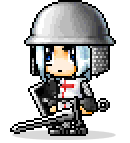📋 Complete Guide Contents
📊 Manual Stat Allocation System
One of the most defining features of pre-Big Bang MapleStory was the manual stat allocation system. Every time you leveled up, you received 5 ability points (AP) that you could distribute among four core stats: STR, DEX, INT, and LUK.
💪 Primary Stats
⚖️ Stat Building Strategy
- Warriors: High STR, moderate DEX for accuracy
- Archers: High DEX, some STR for damage
- Magicians: High INT, some LUK for MP
- Thieves: High DEX, moderate LUK/STR
- All Classes: Meet weapon requirements first
💡 Pro Tip:
Stat allocation was permanent, making early planning crucial. AP Reset items were rare and expensive!
⚔️ Job Advancement System
The job advancement system in pre-Big Bang MapleStory was a rite of passage. Each advancement required meeting specific level and stat requirements, plus completing challenging quests.
🎯 Advancement Stages
✅ Requirements
- • Level requirements must be met exactly
- • Stat requirements vary by class
- • Job-specific quests with unique challenges
- • Item collection for advancement materials
- • Skill point allocation from previous job
🎁 Advancement Benefits
- • New skill trees with powerful abilities
- • Increased HP/MP base values
- • Equipment access to higher tier gear
- • Stat growth bonuses per level
- • Class identity and specialization
🎯 Skill Points & Mastery Books
The skill system in pre-Big Bang MapleStory required careful planning and resource management. Unlike modern MapleStory, you couldn't max every skill - choices had permanent consequences.
📚 Skill Points (SP)
- • 1 SP per level gained
- • Some quests give bonus SP
- • Never enough to max all skills
- • Required strategic allocation
📖 Mastery Books
- • Required for 4th job skills
- • Expensive and rare items
- • Success rates varied (30-70%)
- • Major investment decision
🎭 Build Variety
- • Multiple viable builds per class
- • PvP vs PvE specialization
- • Solo vs party optimization
- • Personal playstyle preference
💡 Skill System Philosophy
Pre-Big Bang skill allocation was about meaningful choices and specialization. Players had to decide between:
- • Damage vs Utility - Max attack skills or support abilities?
- • Single vs Multi-target - Focused or AoE damage?
- • Active vs Passive - Skill usage or stat boosts?
- • Early vs Late Game - Immediate power or long-term strength?
- • Independence vs Dependency - Self-sufficient or party-focused?
- • Cost vs Performance - MP efficiency or maximum damage?
👥 Party Play Mechanics
Pre-Big Bang MapleStory was designed around cooperative gameplay. Party mechanics encouraged players to work together, creating the social bonds that made the game legendary.
🤝 Core Party Benefits
Experience & Rewards:
- • Party EXP bonus up to 50%
- • Shared drop pickup range
- • Better elite monster spawns
- • Access to party-exclusive areas
Combat Synergy:
- • Class complementarity crucial
- • Healing and support vital
- • Coordinated skill combos
- • Tank, DPS, support roles

Warriors
Tanks & Damage

Mages
Magic & Healing

Archers
Range & Utility

Thieves
Speed & Critical
🛡️ Equipment & Enhancement System
Equipment in pre-Big Bang MapleStory had meaningful progression and permanent consequences. Every upgrade decision mattered significantly.
📜 Scroll Enhancement
- • Success rates: 10%, 30%, 60%, 70%
- • Failure consequences: Item destruction possible
- • Slot limitations: Fixed upgrade slots per item
- • Scroll types: Attack, stats, HP/MP, speed
- • White scroll protection: Rare safety nets
Risk vs Reward: Higher tier scrolls offered better bonuses but risked destroying your gear entirely.
⭐ Equipment Tiers
Acquisition: Boss drops, crafting, trading, or rare monster drops.
🔄 Key Differences from Modern MapleStory
Understanding what made pre-Big Bang special requires recognizing how dramatically the game changed after 2010's Big Bang update.
| System | Pre-Big Bang (Classic) | Post-Big Bang (Modern) |
|---|---|---|
| Stat Allocation | Manual distribution of 5 AP per level | Automatic stat growth |
| Skill Points | Limited SP, strategic allocation | Unlimited SP, max all skills |
| Job Advancement | Level + stat requirements + quests | Level requirements only |
| Party Play | Essential for efficient progression | Optional, mostly solo-focused |
| World Navigation | Walking, ships, manual travel | Teleportation, instant travel |
| Progression Speed | Slow, methodical, social | Fast, streamlined, individual |
🎯 The Philosophy Shift
The Big Bang update fundamentally changed MapleStory's design philosophy from "challenging journey" to "accessible destination":
Pre-Big Bang Values:
- • Challenge and achievement
- • Social cooperation
- • Long-term investment
- • Meaningful choices
- • Community bonding
Post-Big Bang Focus:
- • Accessibility and speed
- • Individual progression
- • Quick satisfaction
- • Streamlined systems
- • Broader appeal
🏁 Embracing Classic Complexity
Pre-Big Bang MapleStory mechanics weren't just different - they were fundamentally built around different values. The manual stat allocation, limited skill points, challenging job advancements, and party-centric gameplay created a world where every decision mattered and every achievement felt earned.
MapleStory Classic World's return to these systems represents more than nostalgia - it's a return to meaningful progression, social gameplay, and long-term investment in your character and community.
⚔️ Ready for the Challenge?
Classic mechanics reward patience, planning, and partnership. Are you ready to experience MapleStory the way it was meant to be played?
🎮 Get Launch Updates